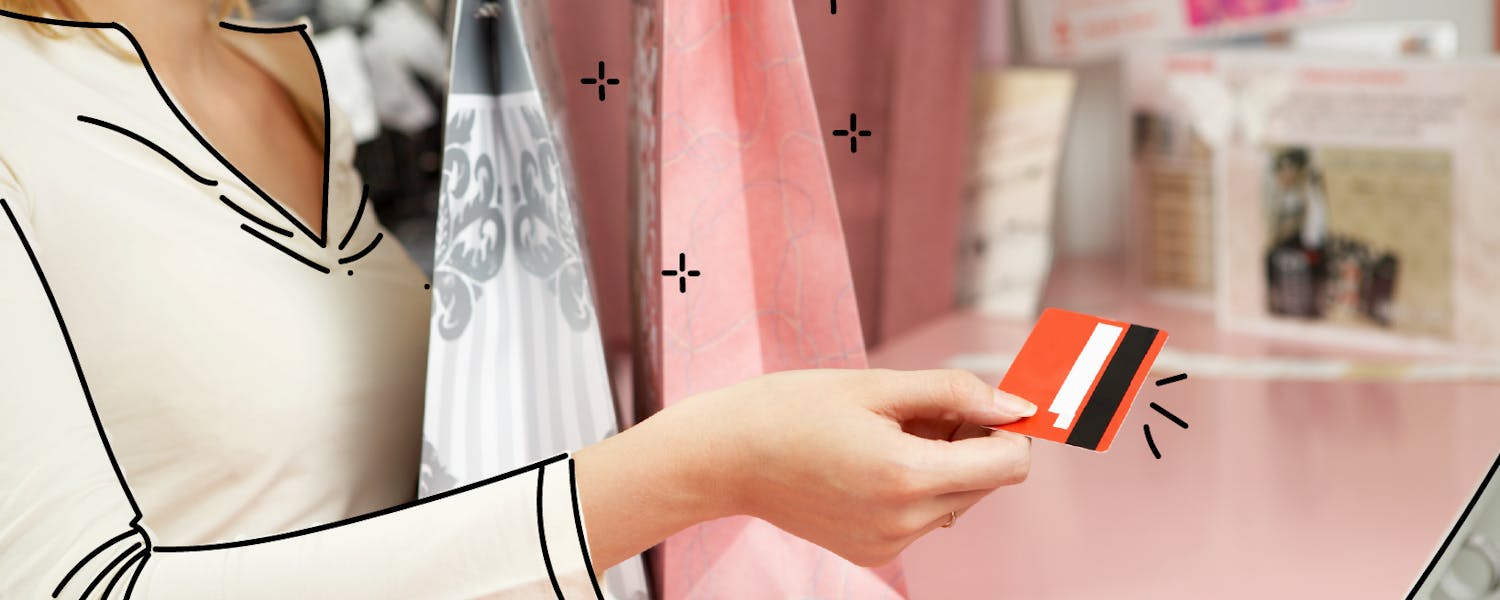A quick guide to: Stop buying stuff you don’t need!
We can't enter your mind and install a chip to prevent you from buying unnecessary things (not for Elon Musk's lack of effort), but we can provide you with a basic guide to change your habits.
While consumption may be at the very heart of the economy and a job generating engine, it’s also true that we can’t carry the nation’s economy on our wallet’s back.
With that logic, it would take way more than the Tesla’s bank account to get us through the next year, and less than a trip to its dealership to understand that maybe keeping our expenses in order may be a better idea for our personal finances.
For those of us who takes a bit to remember that our budget has a limit, here are some tips to think fast… and spend less:
All you (may) need it’s just a little patience
Stop! Breathe and count to ten. Take the time to think if it's wise to buy what you had in mind.
Envato/insta_photos
Separate the item from the initial emotional reasons why you want to buy it and consider if you really need it.
Apply the 7 day rule…
What is the 7-day rule in shopping?
The 7-day rule applies when you feel like buying something you hadn't planned to purchase. The first step (and the hardest, to be honest) is to decide to wait 7 days before buying it.
Applying this rule isn't easy, but it works like a muscle at the gym: at first, it takes a lot of effort to lift a small amount of weight, but after many repetitions, it's possible to lift a lot of weight with little effort. This also works as a muscle that needs to be used many times to become stronger.
Once you’ve decided to apply the 7-day rule, make plans to buy it the following week, then…
If you remember:
- Research other stores, prices & product substitutes.
- Evaluate if you can afford it and if it helps you achieve your personal goals.
- Determine if you truly need it, or if it’s just a whim (by now you should have all the arguments to make up your mind).
Envato/AtlasComposer
If you don't remember… it means you don't need it.
There are some variations of this rule, but it comes with other names and shorter periods of time.
You can use either one, just keep in mind that it is all about waiting, so don’t go for one rule just because of its shorter length.
- The 1% rule gets its name from purchases that exceed 1% of your yearly income, you should wait 24 hours before deciding to buy it.
A good idea to include in your evaluation period. - The 48 hour it’s just the same as the 7 day rule but gives you 48 hours to make a decision… That’s a lot of unplanned work in a short time to check your budget.
This is not bad when you find a very good deal.
For large items like appliances or furniture, give it a month to see if the purchase still seems important to you.
Don’t buy if you're angry or sad
Envato/13people
When I'm sad, I go out to buy clothes, books, or food to distract myself. Does that sound familiar?
Often, what you buy isn't out of need but impulse.
Every time you want to buy something, think if you really need it or if there's something else you could use instead.
Ann Patchet, book writer and collaborator for the New York Times, explains the following in her article "My Year of No Shopping":
"The things we buy are like a thick coat of Vaseline smeared on glass:
We can see some shapes out there, but in our constant craving for what we may still want, we miss life’s details."
Ann Patchet
Author of The Dutch House
We can learn from Ann’s example, we should buy either things we need or things that will help us achieve our goal, but never buy to fill our voids.
Reuse what you already have
If you decide to stop buying, you might discover several joyful findings at home.
For instance, suppose you run out of lip gloss, and this time you decide not to rush out to buy a new one.
Envato/margaritaylita
Instead, you search through your desk drawers and the pockets of your coats and pants, only to find that you have 5 lip glosses scattered around your house, eliminating the need for a new purchase.
Look closely, you likely have several forgotten items at home that you could use right away without buying more.
Check your clothes, books, kitchen items, pantry, shoes, and you'll see.
Finish the products you already have at home.
Don't buy for the sake of buying; remember that accumulating containers filled with "little bits" only clutters your space with things.
Beware of the highs and lows when shopping
Most items you purchase only bring you temporary joy. Just remember that the next time you're about to buy something you don't need.
Stop using credit cards for everything, if you buy something knowing you’ll end up paying interest on it, be wise and be sure it's a debt that will help you grow.
Example: If you're thinking of buying an expensive laptop to do your designs and improve in your job, DO IT.
Envato/Prostock-studio
That debt will help you continue to earn money.
However, if you go into debt with your credit card to buy another pair of limited edition sneakers, perhaps it wasn't the most thoughtful and careful purchase you've made.
Not going shopping saves you an impressive amount of time… (and guess what?) as well as money.
Make the essentials the ‘musts’ in your list
The essentials, what you really need to live. For example: Food, personal hygiene products, medications if you need them, etc.
The essentials category doesn't include "treats" like clothing, streaming services, pastries, etc.
You must be aware of what you truly need and have this list of things you should buy (because you really need them).
Everything else can wait.
Envato/FabrikaPhoto





